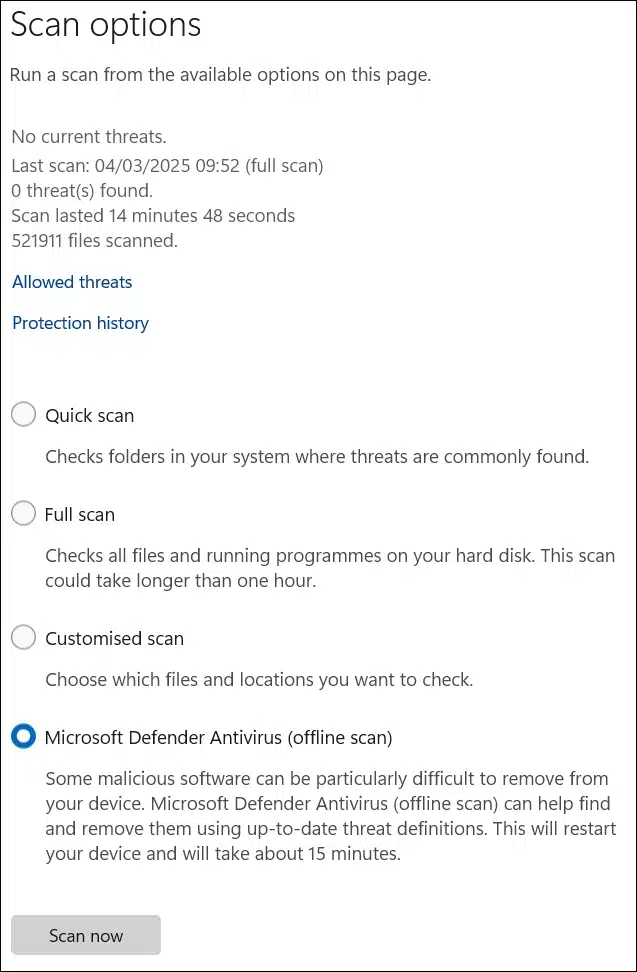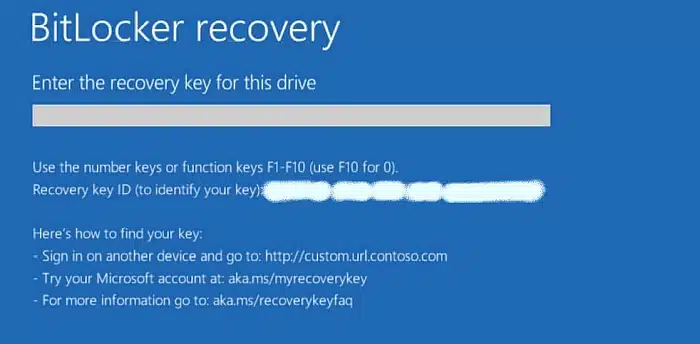The BitLocker Recovery Key

I am going to ask a question later: “Do you have a secure record of your BitLocker recovery key?”
I got the idea for this article whilst working with a client last week on their cyber security. I was testing Microsoft Defender’s scanning for a training session I was writing for them, when I thought I would try Defender’s offline scanning mode. It was quite easy to select from Microsoft Defender’s scan options.

I hit the scan button and I got a notification that my laptop was going to restart in a few minutes, so I went off and made some tea.
I need my BitLocker Recovery Key
On my return to my laptop, instead of the running scan I was expecting, I was met with this screen.

For a few moments I had to think where I would have stored it, however it was in the first place I looked – the company’s encrypted secure storage. I had a number of keys in the encrypted document and the ID on the screen allowed me to identify the correct one.
On with the scan…
Training and the BitLocker Recovery Key
My training is always evolving and in the anti-virus section I now include advice on the BitLocker recovery key, the Recovery Key ID and how to store this top secret information securely.
In support of encryption
I am a great advocate of the use of encryption by an organisation to improve its cyber security, but this simple test showed how safe storage of the encryption keys to this sensitive data is also something that has to be considered when using encryption.
How to…
I was going to write this section myself, then I thought I might get CoPilot to write it, in the end I opted for a link to the Microsoft Support page:
Find your BitLocker recovery key – Microsoft Support
So…
Do you have a secure record of your BitLocker recovery key?
Clive Catton MSc (Cyber Security) – by-line and other articles
Further Reading
Encryption – A Primer | Smart Thinking Solutions
BitLocker for Cyber Security | Smart Thinking Solutions
Photo by Christina Morillo
Other images fair use

